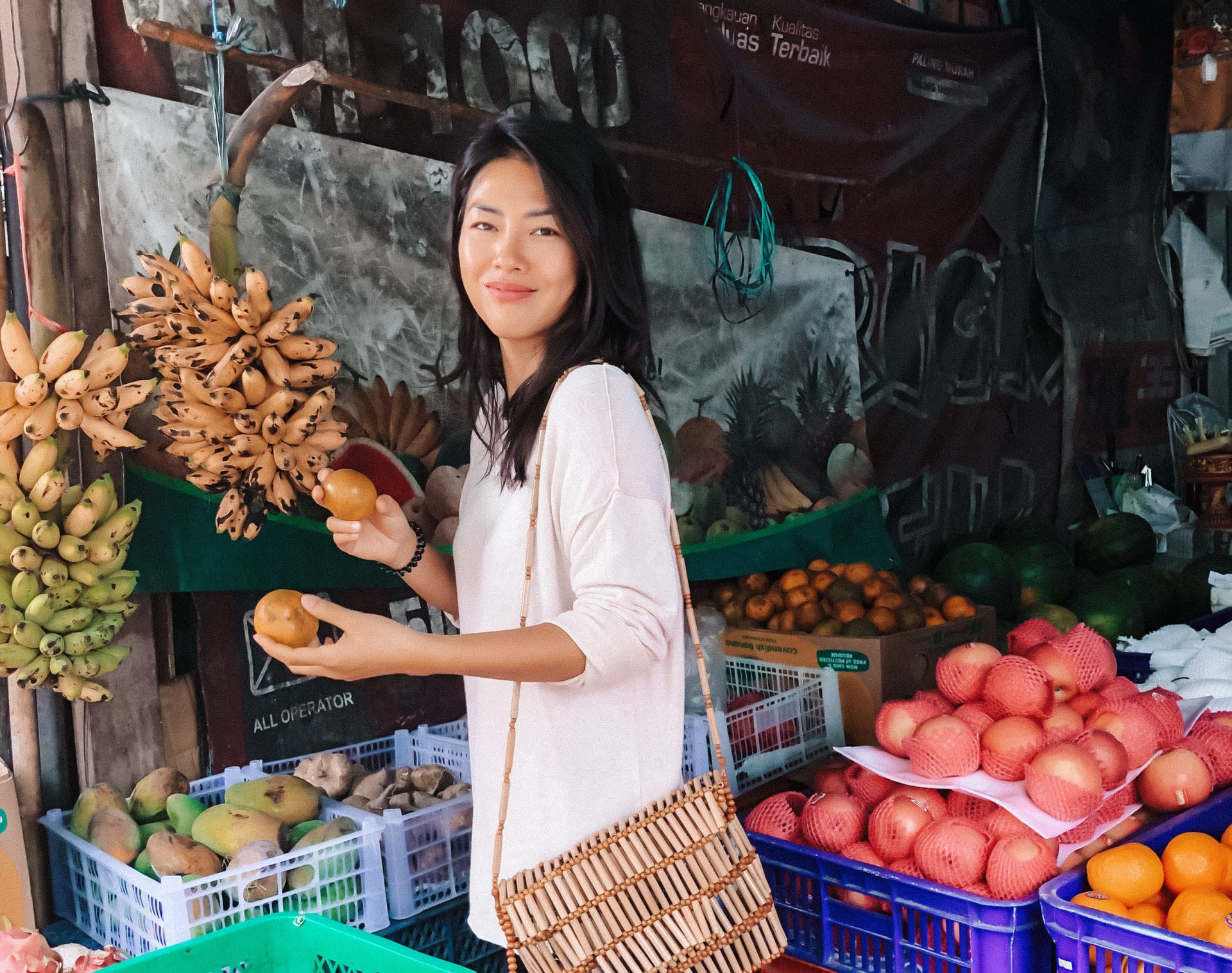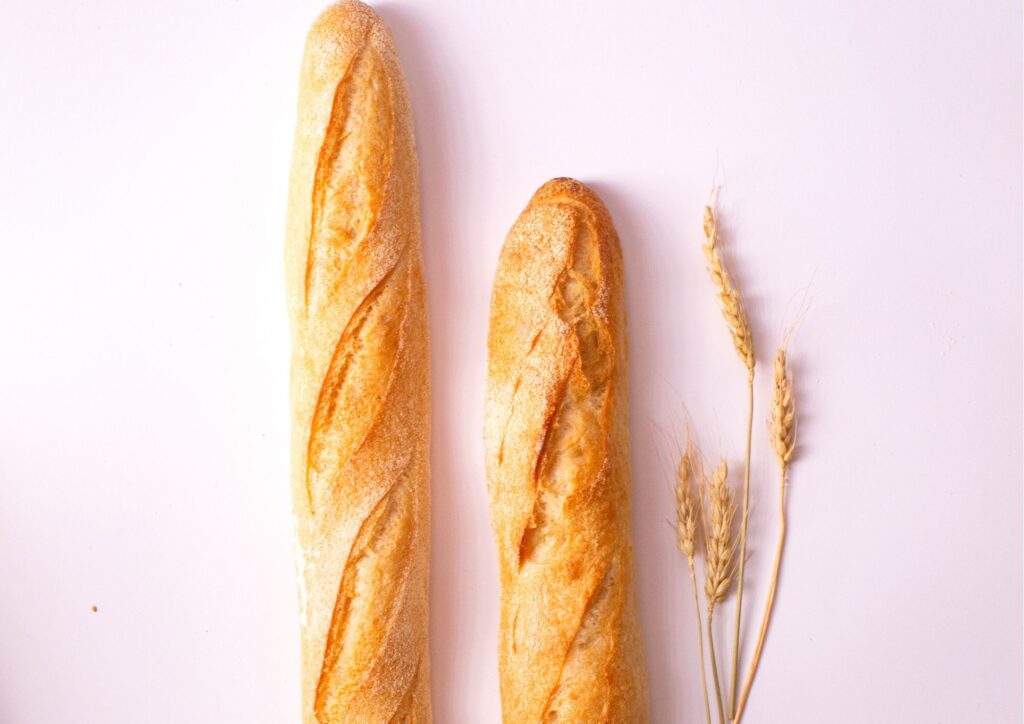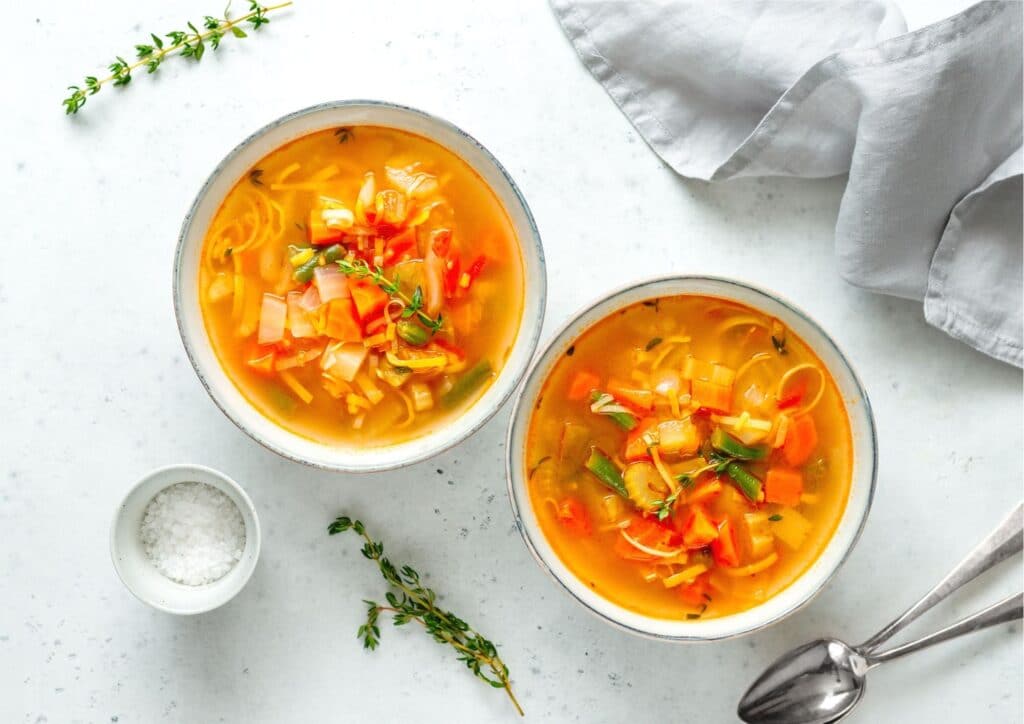Eating a whole food plant-based or vegan diet has never been this popular, and that’s for good reasons. For example, to improve your health because you want to lower your cholesterol levels and high blood pressure. Or because you heard that you can lose weight and boost your energy on a plant-based diet. Besides these motivations, you might care about the environment or want to end animal suffering for meat consumption. Likewise, you watched some documentaries on Netflix that made an impact on you, such as Game Changers, Forks over Knives, What the Health or Cowspiracy. If you haven’t watched these, please do so, they are very informative and it will definitely help you on your journey!
Coronavirus and COVID-19
Furthermore, we’ve learned that coronaviruses are zoonotic, meaning they are transmitted between animals and people. Yes, how crazy is that! For example, the Spanish flu came from wild birds, then you have the swine flu, bird flu, both SARS and COVID-19 were most probably caused by bats and many more deadly viruses caused by animals.
That is to say, if you want to help lower any coronaviruses in the future, and therefore curious about how you can start a whole food plant-based lifestyle, then I can’t wait to explain more about it to you in this post!
Vegan vs. Whole Food Plant-Based
I often get the question if I’m vegan. First, you have to understand the difference between a whole food plant-based diet from a vegan diet. Both don’t consume animal-based foods but a whole food plant-based (WFPB) diet focuses mainly as the word says on whole foods. You eliminate or minimizes all animal products and highly refined foods.
Whole food describes natural foods that are not heavily processed. That means whole, unrefined, or minimally refined ingredients. And avoiding overly processed food like refined (white) flour, table (white) sugar, pre-packed chips, cookies, and fast food.
Plant-based means food that comes from plants and doesn’t include animal ingredients such as seafood, meat, dairy (milk, butter, and cheese) or eggs.
Vegans avoid all animal products whether that is in food, clothing, shoes (leather), or any other parts of their lives. Vegans do not necessarily focus on whole plant foods — they may still eat refined and processed foods. In other words, a vegan diet doesn’t necessarily mean wholesome and healthy.
I want to make an important note before I continue. If you know me, you know I’m anti diets. To clarify, the term diet to lose weight and restricting calories that is. However, in this article when I use the term diet, I refer to a lifestyle of how someone eats on a day to day basis.
Whole Food Plant-Based Ingredients
Find below an example of ingredients of what eating the rainbow provided by Mother Nature means 🙂
- Vegetables (kale, spinach, bok choy, zucchini, paprika, carrots, celery, pumpkin, cauliflower, broccoli, cucumber, tomatoes, onions, eggplant etc.)
- Tubers (carrots, white potatoes, sweet potatoes, purple potatoes, parsnips, beets, yams)
- Fruits (berries, avocado, bananas, mango, papaya, apples, pears, pineapple, citrus, melons etc.)
- Whole grains (rolled oats, quinoa, brown rice, sprouted bread, millet)
- Legumes (lentils, mung beans, chickpeas > hummus, peanuts, soybeans > tofu and tempe, white beans, kidney beans, black beans, white beans)
- Nuts (almonds, cashews, walnuts, pecans, pistachio, Brazil nut, academia, pine nuts)
- Seeds (chia, pumpkin, sunflower, hemp, buckwheat, flax, sesame)
- Herbs (leaves of the plant: oregano, rosemary, coriander, basil, thyme)
- Spices (turmeric, ginger, cinnamon, cumin, nutmeg, pepper etc.)
Health Benefits
Science shows that eating a whole food plant-based diet helps to improve your health, boost your energy levels, clear up your skin, reverse diabetes, prevent chronic diseases, and even make you live longer! If you’re interested in reading some of these resources and science-backed studies try adding (audio) books to your library such as The China Study, How Not To Die, and Blue Zones
If you’re excited reading this post so far, but don’t know where to start, then I’ve got your back! It’s important to remember that any change you make in your life is going to be challenging in the beginning. Start with a positive attitude, know your motivation, and keep going!
Weight loss on a Plant-Based Diet
During my transition to a whole food plant-based lifestyle, I automatically chose real wholesome ingredients such as veggies and fruits instead of heavily processed foods. I felt leaner and lighter in doing so. This is excellent to lose weight in a sustainable way and it’s very effective to keep your weight steady too. And did I already mention that I never counted calories! Double win!
The good news is that you simply start with where you’re now. Let’s not overcomplicate things. We all have unique needs and different eating patterns. If it means for you to replace one meal a day with a plant-based meal, please do so. Or how about you don’t take anything out of your current diet, but you’re adding more vegetables and fruits to it, that sounds doable right? If you feel very committed and you like a challenge, you can just jump right in and switch all your meals to plants, fruits, nuts, seeds, and legumes and never look back. Always do what feels right for you!
My Whole Food Plant-Based Journey
My personal journey started when I got pregnant for the second time in 2014. I didn’t feel like eating animal proteins and quickly switched to plant-based alternatives such as tempe, tofu, beans, and lentils. My cravings were different this time around because I intentionally wanted to have a healthy mindful pregnancy focused on wholesome eating and living. This time I was prepared, educated, confident, and above all mindful. I believe that your body is connected holistically with your mind, soul, and spirit. These building blocks are all working together to make you look good and feel great.
Long story short, I started plant-based eating in 2014, and the years after I sometimes added some meat and fish and some periods I couldn’t even stand the texture or smell of animal products. Nothing rigid, always true to myself, and running my own race. It’s very important in this journey to know your why — your motivation to start eating whole food plant-based. Read about it, do your own research, talk to other vegans, watch documentaries and last but not least, have an open mind to learn new things. There’s no wrong or right way, but it does take practice, patience, and commitment to learning all the new ingredients, plant proteins, and the mindset shift.
Get Started With These Tips
- Spend time in the kitchen and experiment with good plant-based recipes. Try these out: vegan tuna, tropical smoothie bowl, creamy oatmeal or mango overnight oats.
- Give your tastebud the time to adjust to pure natural flavors after eating processed food your whole life 🙂
- Make your kitchen foolproof by investing in some handy kitchen appliances such as a blender, sharp knives, food processor, and cutting boards.
- Add fruits or vegetables at every meal. Spinach to a smoothie, sliced tomatoes on toast, a big bowl of salad, a banana in the oatmeal, pureed pumpkin soup for an appetizer, and a vegetable stir fry for dinner.
- Stock your pantry with plant-based staples. For example, dried lentils and beans, choose your favorite nuts and seeds, quinoa, brown rice, dried herbs, and spices.
- If this all sounds too complicated and overwhelming then start by just adding a simple green smoothie to your meals. Find the Ultimate Green Smoothie Recipes here.
What I Eat In A Day
The only way to eat wholesome plant-based food is to put wholesome plant-based meals in your mouth. That’s it 🙂 Try not to overcomplicate it. Here’s an example of what I eat in a day:
- 7:30 – A tall glass of apple cider vinegar mixed with filtered room temperature water.
- 8:30 – Ultimate Green Smoothie
- 10:00 – Peanut Butter Protein Ball (optional)
- 12:00 – 2 slices of gluten-free toast topped with easy basil walnut pesto and cherry tomatoes or smashed avocado or a salad bowl with leftovers from last night’s dinner
- 15:00 – Creamy hummus and veggie sticks (optional)
- 18:00 – Brown rice, quinoa with Tempe or tofu with a vegetable stir fry or a comforting coconut lentil soup
- 19:30 – A piece of dark chocolate with a golden turmeric latte or herbal tea
Above all else, don’t restrict yourself with sad lettuce and low carbs recipes when all you want is a bar of chocolate or fries. Deprivation and punishment only lead to bingeing and you will feel frustrated and depressed in the end. However, understand your cravings and choose differently at your next meal. In other words, don’t write off the whole day, just because you chose a less nutrient-dense meal before. Remember you’re enough 🙂
Plant-based Supplements
Whole plant foods have all the necessary nutrients we need to thrive, except for B12. I take a B12 supplement daily as that’s the easiest way to get it. Besides this I also advise you to soak up the morning sun from 8-9 am for vitamin D. If you happen to live somewhere in the world little sunshine, just take a vitamin D supplement to support you. Take additional supplements sometimes when needed such as iron, zinc, algae, pre, and pro-biotics. Supplements are complementary to any diet and should never be taken to replace food.
I’m Here For You
I’m more than happy to guide and mentor you in this journey to become more mindful and connected with your environment, your body and health. You can always email me at melissa@melissasenduk.com to reach out to me 🙂
As always, you’re awesome, don’t stop being curious and remember that you’re more than enough just the way you’re.




Hi Mel,
Hope you are well and in good spirit. Always love your post and I’d like to learn more of it. Especially about nutrition and whole food plant-based since I’m preparing for my IVF process 🙂
Taking baby steps now, but with your guide I think I will enjoy it the process better.
Say hi to Andrew and hugs for the boys…
Blessing,
Ayuphita
Hi Ayu! So happy to hear about your journey. May God bless you and grant you wisdom! Let me know if you want to talk more about this topic 🙂